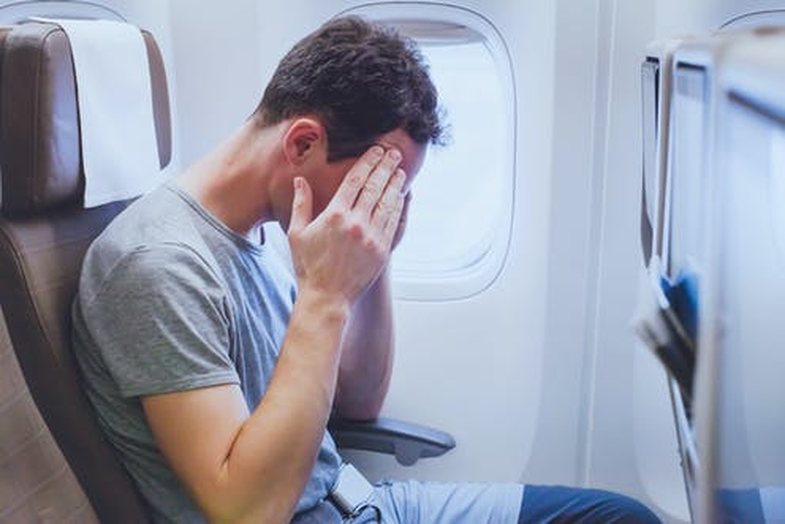
It is known as "motion sickness" and describes all the symptoms - such as nausea, vomiting, dizziness, cold sweats, headaches, etc. - which are experienced during travel by car, bus, train, plane or boat.
This disturbing condition is caused by confusing signals - for example, when traveling by plane, you do not see the turbulence, but feel it. Confusion in the brain causes nausea or vomiting.
"Motion sickness" is treated with drugs that only prevent the onset of symptoms. Most people who experience symptoms are aware that they may show up while traveling.

To prevent them, plan to book a trip a few days in advance. If traveling by plane, look for a seat near the window or avoid sitting in the middle. On trains, boats or buses, sit forward and try not to turn your head back. On boats, look for a cabin as close to sea level as possible and, if possible, provide fresh air. In all cases, avoid reading.
Sitting in front of the car often helps. Many people who experience this condition as a passenger have no symptoms when driving the vehicle themselves.
It is important to get plenty of rest the night before you travel and avoid alcohol consumption. Dehydration, headache and anxiety worsen the symptoms.

Eat well so that the stomach calms down. Stay away from fatty or acidic foods before and during travel.
Many experts say that aromas like mint, lemon and ginger help. Their effectiveness has not been proven by science, but you can still try them.
Sources: Health, Healthline





